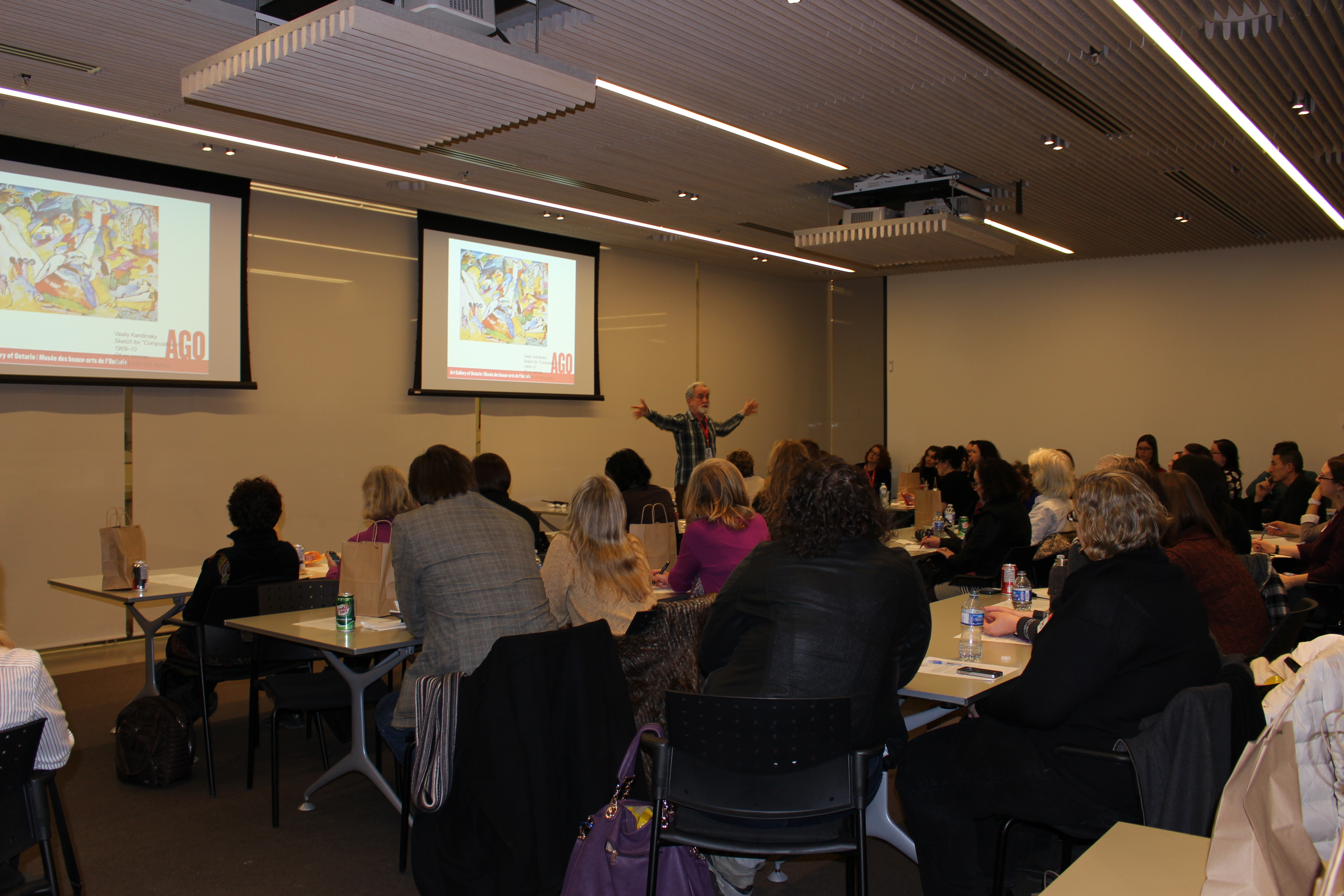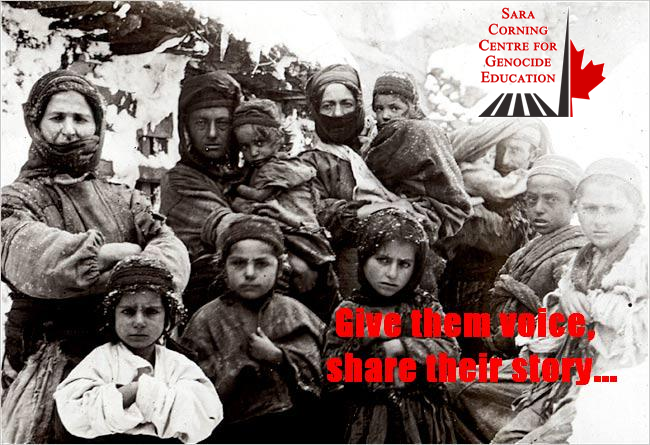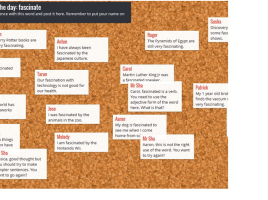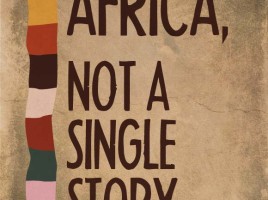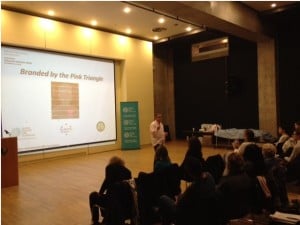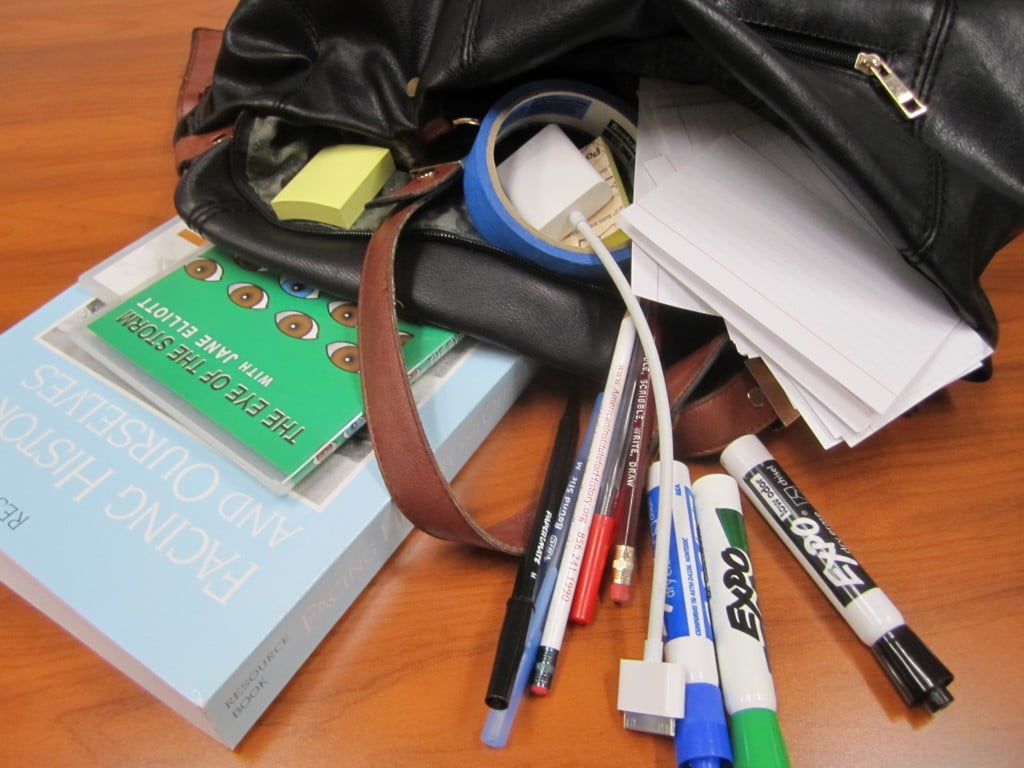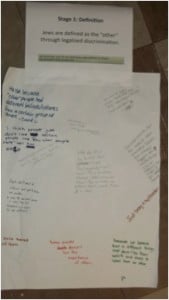Recently, Facing History and Ourselves and the Art Gallery of Ontario co-sponsored a workshop for the exhibit “The Great Upheaval.” This exhibit was on loan from the Guggenheim Collection and focused on European artists during 1910-1918. As a teacher, I was interested in this workshop for two reasons: to learn more about these artists and to discover new strategies to incorporate art into my teaching practice.
Infusing your Classroom with Colour: Facing History at the AGO
Posted by Cheryl Payne on March 10, 2014
Topics: Art, Professional Development, History, workshop, Strategies, Lesson Ideas, big paper
As a history teacher, I often struggle to help my students see the relevance of the past and understand the power it can wield in helping them to navigate the present. With this in mind, I began to plan my unit on the Armenian Genocide. This genocide occurred almost 100 years ago under the cloak of WWI in 1915, when the Ottoman government embarked upon the destruction of its Armenian population. I decided that to give voice to this genocide beyond readings and documentaries, I would invite a guest speaker from the Armenian community.
Topics: Choosing to Participate, Armenian Genocide, History, Memorial, genocide, Genocide and Crimes Against Humanities Course, Lesson Ideas, CHG, Personal history
Topics: Choosing to Participate, Facing History Resources, History, Best of..., Lesson Ideas, Holocaust and Human Behaviour, CHG, reflection
Terrific EdTech Tips: Top 5 Posts from Facing History's Tech Blog
Posted by Ben Gross on December 18, 2013
Topics: Professional Development, Choosing to Participate, Human Rights, Facing History Resources, Identity, History, Technology, Best of..., Lesson Ideas, Holocaust and Human Behaviour, Social Justice
Topics: Choosing to Participate, Human Rights, Facing History Resources, Best of..., Lesson Ideas, Holocaust and Human Behaviour, Social Justice, reflection
Topics: Choosing to Participate, Facing History Resources, Identity, History, Memorial, current events, Middle School, Lesson Ideas, In the news, Holocaust and Human Behaviour, English Classroom, Social Justice, LGBTQ, Personal history
A familiar feeling is in the air as the Labour Day long weekend approaches. It might be hard to put our finger on if it wasn’t such an important part of such a large portion of our lives; school. The first day of school is one filled with excitement, promise, and expectation.
As our students arrive in our classrooms, we need to be ready to facilitate the creation of a safe and open learning environment. That first day, and those first few weeks, set the tone for the rest of the year.
What’s in YOUR bag this year as your students meet you back in the classroom? What tools, strategies, lessons are your “go-to” items to help you engage, inspire, and push your students to new heights?
Topics: Back-To-School, Strategies, Lesson Ideas
We know that it's not easy to teach about the Holocaust and genocide. For many the topic is very difficult and many students cannot wrap their heads around the scope and magnitude of how these mass murders could occur, particularly about the idea of how an entire nation could allow horrific events like this to happen. Creating that safe, caring classroom is essential in being able to have these difficult lessons. In a middle school classroom, these are essential conversations, as students at this age care and have a strong sense of fairness and justice.
Topics: Facing History Resources, History, Regent Park, Middle School, We and They, Strategies, Lesson Ideas, Holocaust and Human Behaviour, Social Justice
Finding space to create movement in our lessons is important for our kinesthetic learners. If we do not find ways to engage them, we can expect to lose them. Moreover, movement is important for all students. It wakes them up, energizes them, and an alert student is more likely to learn. What follows is a lesson that was developed with the help of Jasmine Wong, program associate for the Toronto Office of Facing History and Ourselves. It relies on the use of the Gallery Walk, thus getting students up and moving. The lesson was designed specifically to meet the expectations of locally developed Genocide and Crimes Against Humanities course, CHG38 (see expectations as listed in the Human Zoos Lesson plan), but can be tailored to most History courses.
Topics: History, Racism, We and They, Lesson Ideas
Using Literature Circles to Deliver Culturally Responsive and Relevant Pedagogy in Urban Schools
Posted by Michael Grover on May 31, 2013
In “Culturally Relevant Pedagogy: Ingredients for Critical Teacher Reflection,” Tyronne Howard notes the importance of finding ways to address the growing heterogeneity of our students cultural needs to “construct pedagogical practices that have meaning to students’ social and cultural realities,” (195-6). Literature Circles are a model that I used, which I have found to be an effective tool for engaging students using differentiation. The diverse nature of my classroom, which is common for an urban school, makes it is difficult to find a single text that will engage each student in the classroom. Since those students who do not engage and read their texts are traditionally the least successful, it is important to try and find materials they will.
Topics: Urban Education, Night, Literature Circles, Lesson Ideas, English Classroom, Red Scarf Girl, Literature, English

